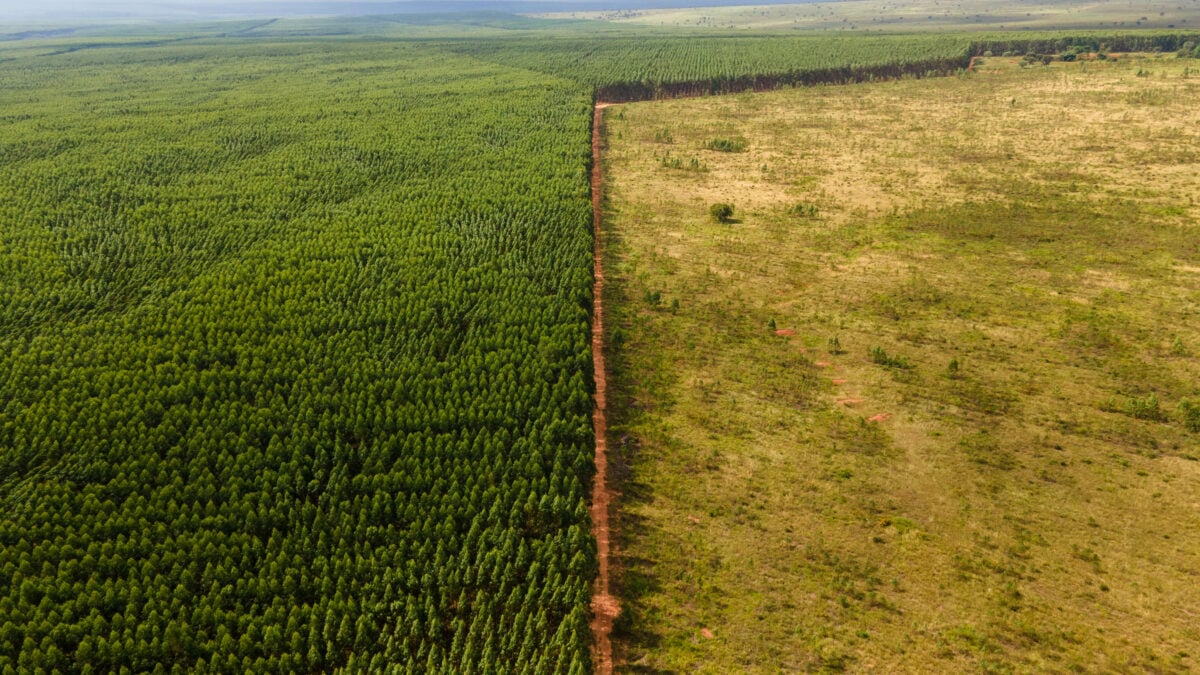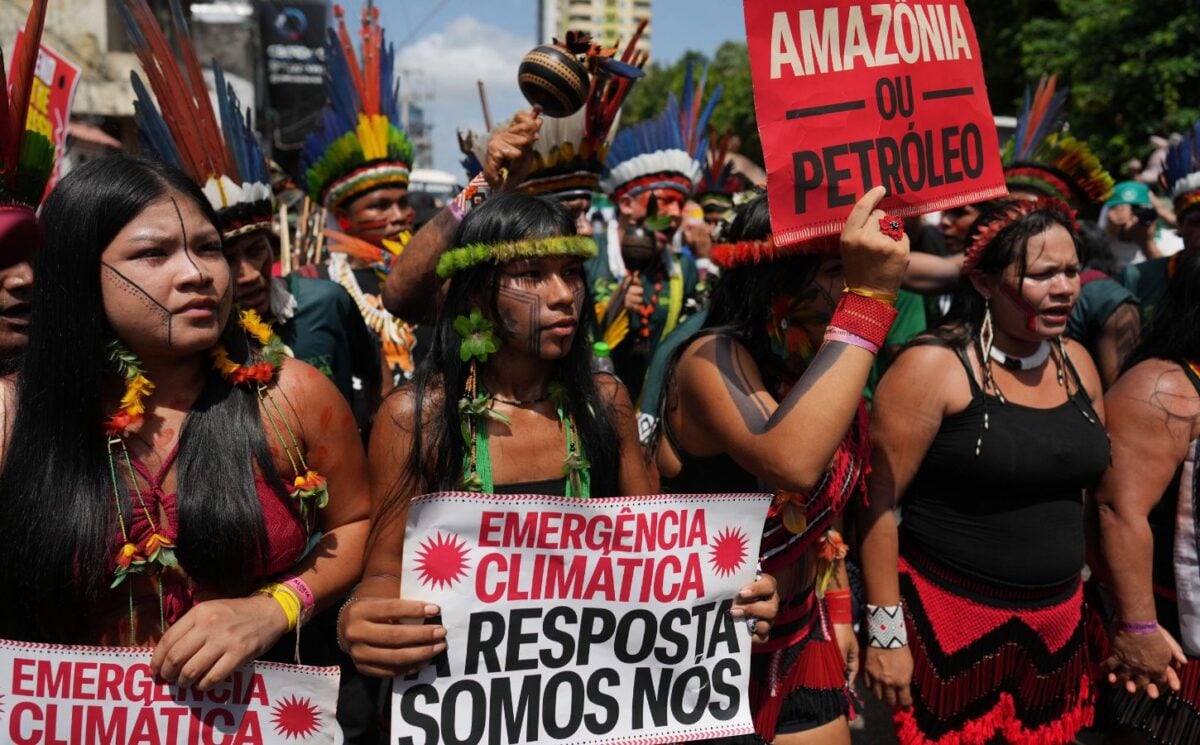More than 300 industrial agriculture lobbyists attended this year’s COP30 event, according to a new report.
A joint investigation conducted by DeSmog and the Guardian found that one in four of the 300-plus lobbyists attended COP30 as part of an official country delegation. Six gained “privileged access” to international negotiations over future climate policies.
Read more: Animal Ag, Not Fossil Fuels, Is The Leading Cause Of Climate Change, Says New Study
The UN’s annual Climate Change Conference took place earlier this month in Belém, Brazil. The city sits at the mouth of the Amazon River and next to the Amazon rainforest, where animal agriculture is, notably, still the leading cause of deforestation.
According to DeSmog, the number of lobbyists representing the interests of industrial cattle farming, commodity grains, and pesticides at COP30 was up by 14 percent from last year’s summit. It was also a larger group than the Canadian delegation, the 10th-largest global economy and the 11th-largest greenhouse gas (GHG) emitter.
JBS, MBRF, and Minerva, which are Brazil’s largest meat companies, brought 13 delegates between them, eight of whom were part of the Brazilian government’s official delegation. In October, Friends of the Earth found that the emissions of those three companies are equal to those of the British oil and gas “supermajor” company and frequent polluter, BP. In fact, JBS alone emits more methane than reported by ExxonMobil and Shell, both significant high-emitters, combined.
COP30 was ‘not a climate conference but a hostage negotiation’
“What’s happening in Belém is not a climate conference but a hostage negotiation over the future of the planet where those holding the detonators – the soy barons, the beef cartels, the pesticide peddlers – are somehow seated at the table as honest brokers,” said Raj Patel, a research professor from the University of Texas School.
As reported by the Guardian, agriculture is responsible for up to a third of global emissions, while animal farming, in particular, is responsible for almost 60 percent of food emissions. It is also the current leading cause of climate change.
Read more: Animal Agriculture Responsible For Exceeding 4 Planetary Boundaries, Says Oxford Professor
‘Nothing about the Amazon can be decided without listening to those who live in it’

In contrast to the much-criticized presence of lobbyists, COP30 also made history for having the largest number of Indigenous delegates in the event’s history.
Estimates have ranged from 2,500 to more than 3,000 representatives from around the world, and Brazil has chosen now to create 10 new Indigenous territories. These shifts are particularly notable in contrast to the presence of lobbyists, as Indigenous peoples are at the forefront of deforestation reduction and ecosystem protection.
However, the week has still seen a series of “joyous and defiant” protests, per the Guardian, including a blockade over the plight of Indigenous peoples, where one protestor said, “We were never listened to.” Thalita Silva, an Indigenous activist and the programme coordinator for the Global Fund for Children’s Climate Justice and Youth in Brazil, told Edie that Indigenous peoples’ “increased physical presence” at COP has not been accompanied by appropriate “decision-making power.”
“At COP30, more than 300 agribusiness lobbyists occupied the space that should belong to the forest peoples,” Vandria Borari, an indigenous leader of the Borari territory of Alter do Chão in the Lower-Tapajós region of Pará, told DeSmog. “Nothing about the Amazon can be decided without listening to those who live in it.”
Read more: Animal Farming Is ‘World’s Biggest Cause Of Food Waste,’ Says Report






